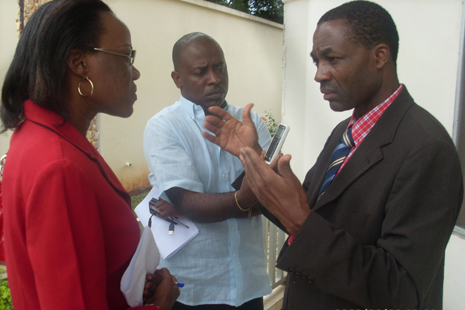On a trip to Yaoundé, Cameroon in 2009, Christophe Bobda, associate professor of computer science and computer engineering, noticed that the roads were crowded with old cars. The emissions from these vehicles were filling the air with pollution, and Bobda became concerned about the health of the people living in this environment.
Bobda also recognized that, in order to convince the government that pollution was a problem, he needed scientific evidence. “Everyone can see that there is a problem, but nobody really cares about doing something until you provide them with data,” he explained.
In order to get this data, Bobda led a team that designed and built a set of devices that can monitor air quality. Each seven-inch by three-inch device contains three sensors, which can detect carbon dioxide, carbon monoxide and liquefied petroleum gases. It also incorporates a processing board, which prepares data from these readings, and a modem, which can send that data to a central server.
In June 2011, Bobda, who is a guest professor at the Ecole Nationale Superieure Polytechnique in Yaoundé, traveled to Cameroon with the 25 sensors built by his group. After teaching a course in which he demonstrated the technology involved in the sensors, Bobda presented them to the university. Researchers there will install the devices around the city, rotating them among 60 intersections to collect data about pollution levels.
This data will be incorporated in a geographical information system designed by Emamuel Toyne, a professor at Ecole Nationale Superieure Polytechnique. Researchers can then use the data to study the correlation between air pollution and pulmonic diseases, which are a growing problem in Yaoundé. “We intend to show to the government that these pollution levels are not safe, and we hope that this is going to make them implement legislation to solve this problem,” explained Bobda.
This project was funded by the German Organization for International Cooperation and Afrisciene, an African science and technology organization.
Topics
Contacts
Camilla Medders, director of communications
College of Engineering
(479) 575-5697, camillam@uark.edu
